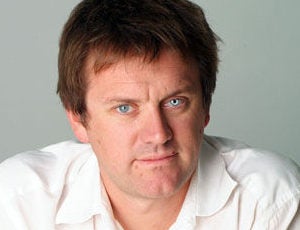
Channel 4 News is paid a “tiny” fee for the content it shares on Facebook that does not cover “a fraction of what it costs” to make, according to editor Ben de Pear.
The broadcaster, which has a team of 130 staff including 12 dedicated digital journalists, notched up two billion video views on Facebook last year.
It has won critical acclaim for its coverage of the war in Syria, videos of which it shares on social media, with filmmaker Waad Al-Kateab awarded the prize for foreign journalism at the British Journalism Awards last year.
“Facebook are very proud that we are there but they have yet to come up with a way to fund what we do,” De Pear told The Drum.
“The stuff we do is unique and very professionally done. There’s no way that the money you get from Facebook could ever pay for a fraction of what it costs.”
Facebook recorded total revenue of more than $27bn (£21bn) last year, up well over half (57 per cent) on the year before, according to its annual report for 2016.
The company said it generates “substantially all of our revenue from selling advertising placements” with advertising making up 97 per cent of its total revenue income last year, up 54 per cent on 2015.
De Pear said: “A proper news organisation can’t earn enough money off Facebook to wash its face, it’s a huge distortion.”
He said he believed Facebook was a media company, though it has so far rejected this claim, adding: “With the amount of money they are making and the power and influence they have, they have to accept responsibility.”
De Pear, who was appointed Channel 4 News editor in 2012, added that Facebook was essentially profiting from “fake news” – defined as news that is entirely untrue and written as propaganda or as a means of generating income.
Facebook is the platform most associated with the issue, which grew out of the recent US election campaign.
Said De Pear: “For every pound fake news has earned for the fake news publisher, Facebook has made at least the same amount of money,”
Facebook’s head of news partnerships in Europe, Nick Wrenn, said this week that he saw Facebook as primarily a tech company and that it wasn’t their “job” to say what stories are fake.
But, the platform is employing fact-checkers to verify stories and write warning labels on those that appear false, with Wrenn saying the company wants to “eradicate” news that is “hugely fake” from its site.
“We aren’t gate-keepers, we are a platform and we want to be as open a platform as possible,” said Wrenn.
“We want the standards to be respectful and correct and for good journalism to be able to reach the people for which it’s intended.”
He added: “We all have a vested interest in a healthy industry. We understand these are times of disruption but we are absolutely committed to collaborating so that great journalism can prosper.”
Email pged@pressgazette.co.uk to point out mistakes, provide story tips or send in a letter for publication on our "Letters Page" blog
